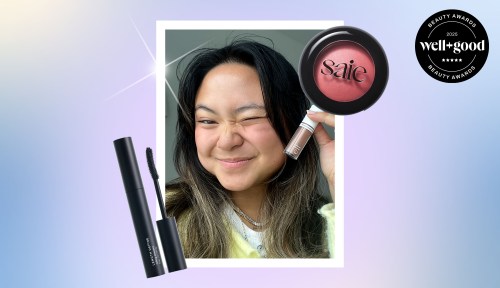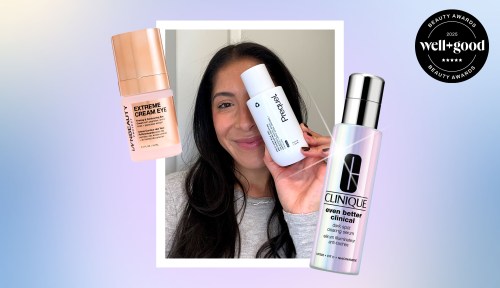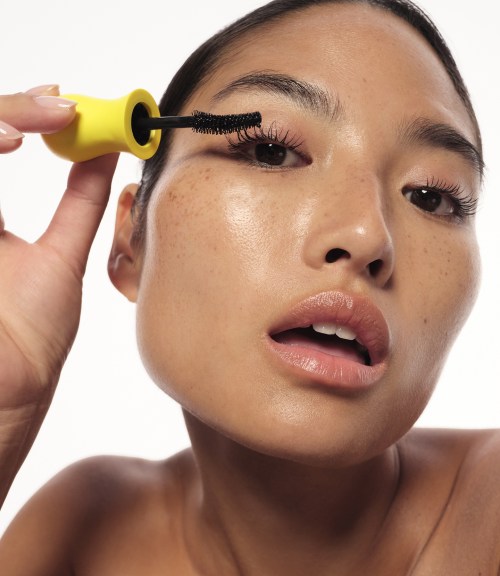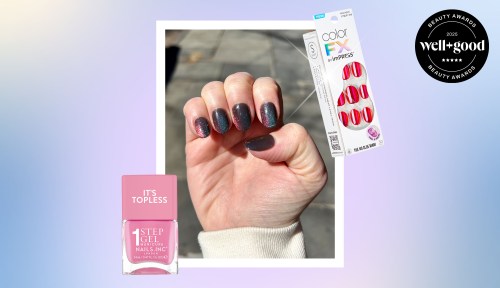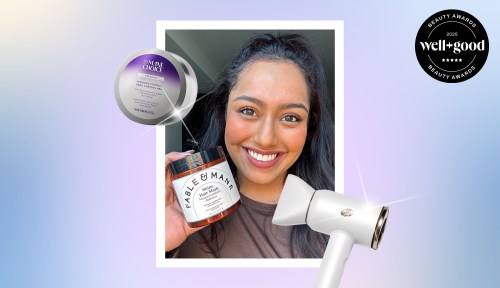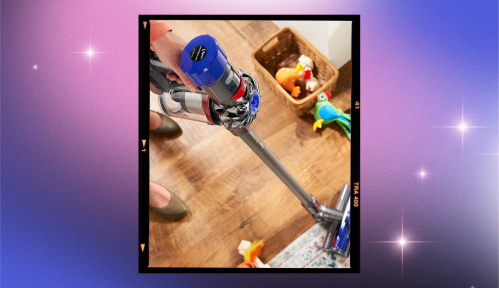Hormonal birth control can do some pretty funky—but also amazing!—things to your body. It can change your skin (buh bye, hormonal acne), regulate your periods, and in news-to-my-ears, it can also change your hair. When a friend recently told me that she was convinced her IUD was making her hair curly, I admittedly had my doubts. I’d never heard of such a thing! But after talking to an OB/GYN and a trichologist on the subject, she may actually be onto something.
“The birth control pill can definitely affect the quality and quantity of hair growth,” says Sherry Ross, MD, an OB/GYN and author of She-Ology. “Some women notice their hair thins out when taking the pill, while others notice hair loss. There are also women who notice a fuller, thicker, and shiny head of hair while taking the pill.” She notes that it all comes down to how your body and the hormones work together, and that a family history of hair loss may mean that certain hormonal birth control methods could trigger that same reaction in your body.
IUDs, she explains, can be some of the most common culprits when it comes to hair changes: The Mirena has been known known to cause hair loss in a very (I repeat: very!) small percentage of women: It has alopecia listed as a side effect that effects less than 5 percent of women. According to her, the non-hormonal copper IUD has been associated with hair loss and changing of the texture for a handful of women.
“Many hormones can affect the hair follicles, changing the way they grow and cycle,” confirms Dominic Burg, PhD, a trichologist and hair biologist with Evolis. “Some women have follicles that are especially sensitive to the impact of hormones altered by birth control and this can result in hair cycle shortening, increased shedding, hair thinning and changes in hair quality.” For what it’s worth, this can happen once you stop taking the pill as well. “In this case, it’s the change or absence of the hormones in the pill that triggers a change in the hair cycle,” says Dr. Burg.
To understand why this may happens, it’s important to have a sense of how hormones (as in, the ones that regularly live inside the body, whether you’re on birth control or not) can effect your hair in general. “Hormones effect the body in profound ways. Many of them can also impact the way hair grows, metabolizes, and cycles,” says Dr. Burg, pointing out that its your sex hormones that caused hair to sprout in all those fun and confusing places when you went through puberty (#tbt). “Hormones can affect the way that follicles grow so much that the texture of hair actually changes as a result.”
And going on birth control isn’t the only time your hormones may change what’s happening on the top of your head. “Texture of hair is influenced by the shape of the follicle and the angle that it grows in the scalp—during major hormonal events such as puberty, this can be altered, which results in a change in texture,” says Dr. Burg. Ever heard a woman commenting that pregnancy made her hair curly? Yup, that’s a thing, too.
Pay attention to what’s happening with your hair (like, are clumps of it coming out in the shower? Or has it suddenly gone from straight to curly?), as it relates to other things in your life. Dr. Burg explains that hair changes may happen a few months after the hormone changes do, so you may not realize that the two are connected. “In all cases, you should be looking after your hair cycle and provide your hair with adequate nutrition by eating a good, balanced diet with plenty of vegetables and lean meat or other zinc, iron, B Vitamin, and protein sources,” he says. And if these hairy side-effects are really starting to bug you, talk to your doctor about changing your birth control.
Sign Up for Our Daily Newsletter
Get all the latest in wellness, trends, food, fitness, beauty, and more delivered right to your inbox.
Got it, you've been added to our email list.

